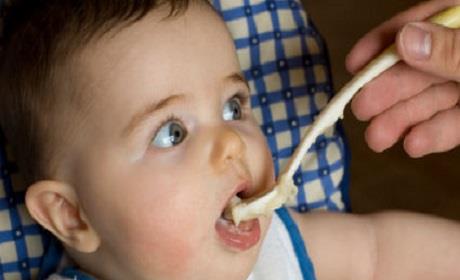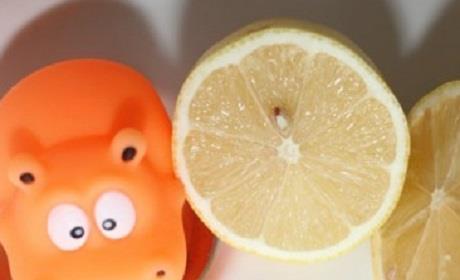Parents do not want their children to always develop naturally and healthy. MarryBaby would like to tell moms the "know-how" to use products with reasonable prices, friendly with the environment, to ensure your child's health is healthy.
1. Breastfeed your baby as much as possible . Not only is this good for your baby, but you also have to eat even more (about 500 extra calories)! If you use infant formula, buy large cans to reduce packaging costs from the manufacturer.
2. Treat your baby with cold saline nasal drops and a cool mist humidifier. Most cold medicines are not recommended for babies.
3. Limit canned foods. Most of them have a coating inside the box containing unhealthy bisphenol A (BPA). Plus items like canned foods are easy to cook, both save money and are healthier.
4. Start using the water bottle with the filter as soon as you notice the pregnancy test . This not only reduces toxins and additives in drinking water, but it also saves you money buying bottled purified water and reduces waste.
5. Remove plastic items from the kitchen so you don't have to guess which container is "safe". Store food in glassware (this is also a good way to reuse baby food, vinegar jars and ketchup) and put snacks and lunches in reusable bags.

Limit canned foods in mom meals!
6. What if you can't throw away all the plastic? Keep your family safe with one rule: don't use heat. Avoid heating food in plastic and always wash it by hand as heat can increase the permeability of harmful chemicals into the food.
7. Use seasonal foods and vegetables when making food for your child. They are the best because they are very fresh at harvest, are more nutritious and less expensive (due to supply and demand problems). Vegetables and fruits from the freezer are usually frozen after harvest, so this is also a good choice.
8. Reduce - reuse - recycle. This not only saves you money, but also reduces waste. You can exchange "win-win" with other mothers to get what you need.
9. Buy organic food when possible and prioritize buying to save money. According to research, the nutritional content of organic vegetables are all higher than regular vegetables, although the design is not good. The chemical residue parameters to ensure food safety are also lower than the normal vegetable samples, especially the residues of Nitrate and E.coli are many times lower than the permitted thresholds. This way, organic food can be worth the money you spend.
10. Why not try fabric. Statistics show that families spend between 50 and more than 100 million dong on disposable diapers for their children from a young age to 3 years old. This obviously makes the use of cloth diapers more "attractive", right?
11. Using natural "chemical" deodorizers. Squeezing a lemon into the diaper box will help eliminate odors.

Using natural therapies is also very effective, but also safe and economical.
12. Crush soft plastic toys : Think squeaky bathroom toys and pliable soft letters. Toys like these were sold before stricter safety laws in developed countries were passed and could potentially contain the hazardous chemicals used to soften and plasticize.
13. Skip 1 or 2 baths. This will save water, several tens of thousands of dong and even the baby's smooth skin. Instead, just use a sponge to wipe the baby's buttocks.
14. Use natural mineral sunscreen using zinc oxide or titanium dioxide. Make sure the product blocks both UVA and UVB rays and does not contain the ingredient oxybenzone, which is not recommended for children.
15. Buy natural organic rubber mattresses like cotton and wool for a crib. Babies usually sleep up to 16 hours a day, so it is obvious that they should not be allowed to inhale the evaporated gases from synthetic materials.
16. Buy bottles that can easily be turned into goblets. You will save space, money and landfill costs.
17. Say no to plastic flooring - wooden imitation plastic tiles in the baby's room due to its fibers can cause allergies. Only floors made of materials such as wood, bamboo, and bamboo should be used and brushed with a grade that is free of harmful chemicals.
18. Make use of baking soda (also known as sodium bicarbonate or salt medicine) - an ingredient in baking soda, but baking soda itself is not a baking powder) . With relatively cheap price, high performance, natural and flexible. Baking soda also has 3 uses:
Sprinkle a few tablespoons in your baby's bath water to help reduce diaper rash.
Mix baking soda and baby oil into a paste and gently rub it on your baby's scalp to treat buffalo shit.
Mix 4 tablespoons of baking soda with nearly 1 liter of warm water to clean the toy, then rinse and let dry.
19. Choose paint carefully . The scent in traditional paints has been linked to respiratory ailments. Choose paints with low volatile organic compounds (low-VOC). The same price as high quality paints. You can also think long-term and choose a gender neutral color, in case you have a grandchild from a relative living with your family or you will have another baby later.













